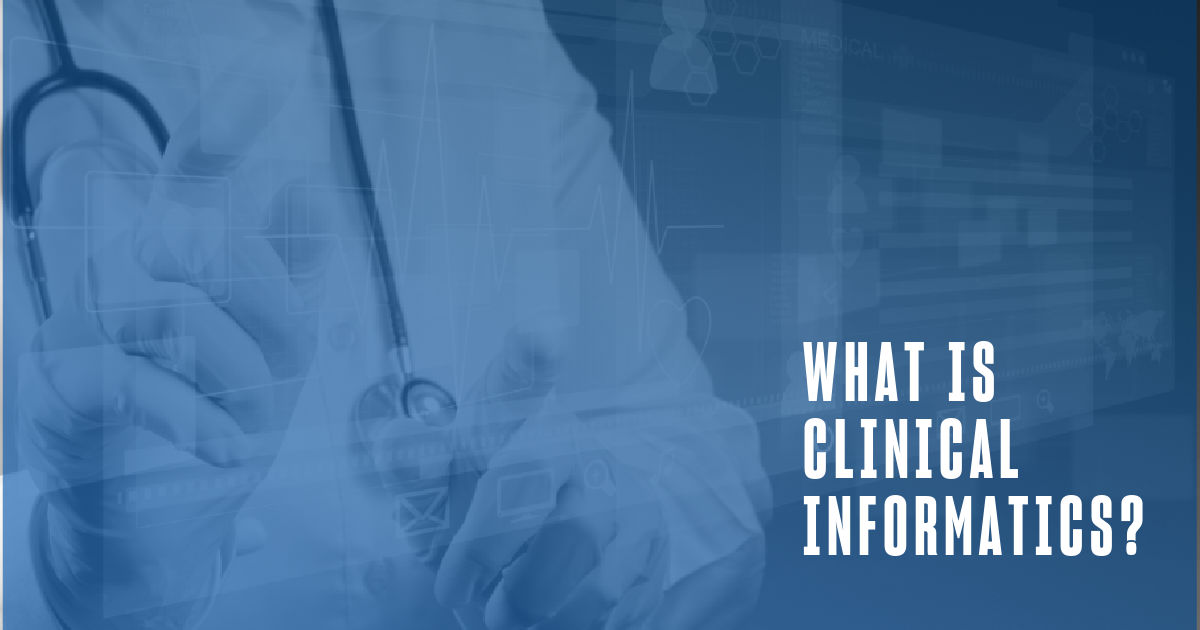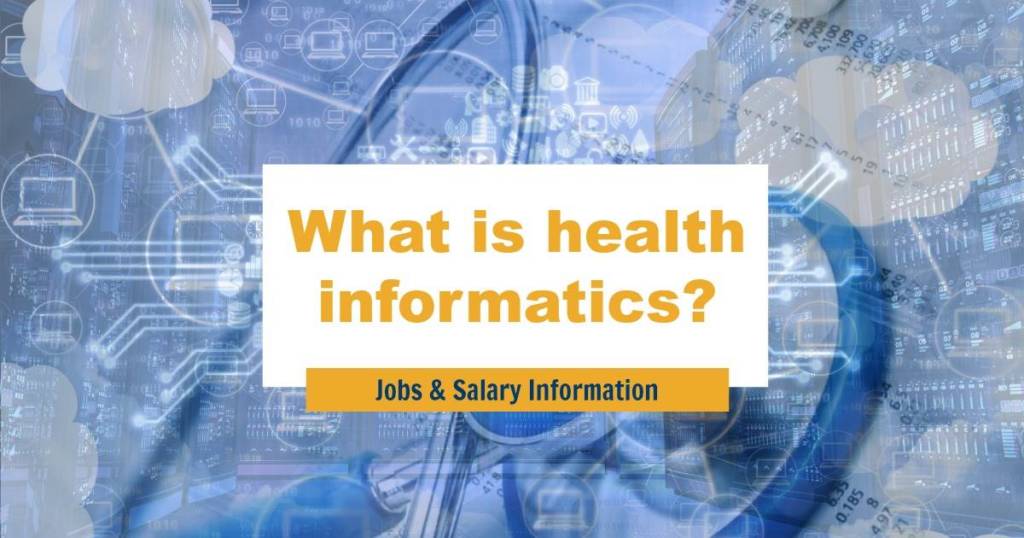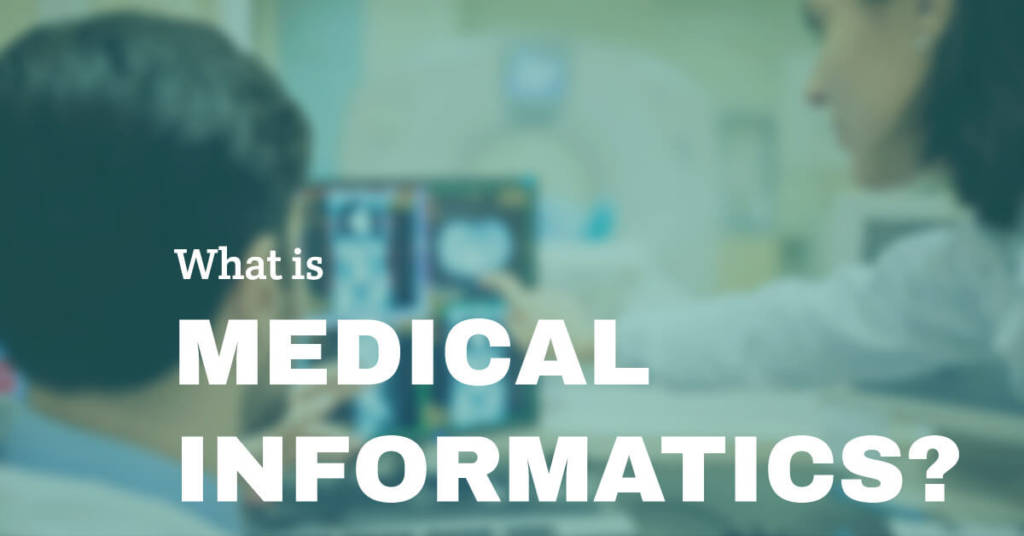With all of the excitement around medical advancements — and health care industry job opportunities — made possible by the field of health informatics, it’s no wonder that so many people find themselves asking: What is clinical informatics? And how does it differ from health informatics?
As this still relatively new field continues to evolve, the terms “clinical informatics” and “health informatics” have sometimes been used interchangeably. However, clinical informatics is increasingly viewed as a distinct medical subspecialty within the larger field of health informatics, which the U.S. National Library of Medicine describes as “the interdisciplinary study of the design, development, adoption and application of IT-based innovations in health care services delivery, management and planning.”
What is Clinical Informatics? — Definitions
The following definition in a recent article on clinical informatics from Medscape.com attempts to simplify an emerging field of medicine that is by its nature quite complex: “Clinical informatics is a relatively new but growing medical subspecialty devoted to using data to improve patient care.”
As Dr. William Hersh, professor and chair in the Department of Medical Informatics & Clinical Epidemiology at the Oregon Health & Science University’s School of Medicine, explained to Medscape, “Clinical Informatics is this field that sits at the interface between data and information technology and medicine or health care.”
Before taking a closer look at what this means in real terms — both for medical professionals who are being called upon to learn about informatics and for those seeking to gain expertise in a field that is transforming the practice and delivery of health care — here are several additional definitions from key professional associations.
Healthcare Information and Management Systems Society (HIMSS) —
“Clinical Informatics promotes the understanding, integration and application of information technology in health care settings.” Those working in clinical informatics careers “[help] to ensure adequate and qualified support of clinician objectives and industry best practices.”
American Medical Informatics Association (AMIA) —
“Clinical Informatics is the application of informatics and information technology to deliver health care services… Clinical informatics is concerned with information use in health care by clinicians.”
According to the AMIA, clinical informatics now affects a broad range of health professionals (physicians, nurses, dentists, pharmacists, etc.) and covers a wide range of topics, including:
- Clinical decision support and documentation
- Visual imaging (radiological, pathological, dermatological, ophthalmological, etc.)
- Provider order entry systems
- Systems design, implementation and adoption
If you have been curious about getting into the field of clinical informatics but are not currently a medical doctor it is more likely that a role in health informatics is what you’re looking for, since clinical informatics is now an officially recognized medical subspecialty that requires practitioners to pass a certification exam administered by the American Board of Preventive Medicine. Because of this, those who lack specific medical experience in clinical care are more likely to pursue opportunities in the broader field of health informatics.
[RELATED] What is Health Informatics? [Video + Jobs and Salary Information] >>
AMIA offers detailed Clinical Informatics Subspecialty information as well as a brief video that helps explain why “clinical informatics is a critical piece of 21st century medicine.”
Though the distinctions and differences between health informatics and clinical informatics are still evolving, several things are certain:
- Clinical informatics is revolutionizing the practice of health care, particularly with respect to clinical care for individual patients; while health informatics also explores the larger potential for using “big data” to improve the health of entire populations and enable medical organizations to deliver higher-quality care at lower cost.
- Together, clinical informatics and health informatics constitute one of the nation’s fastest-growing job sectors, with well-paying career opportunities for those with the right experience and training.
Clinical Informatics and the Era of Big Data
Just as the era of big data is revolutionizing nearly all industries, and fueling significant advancements in day-to-day living, the impact of data collection and analysis in the world of health care is truly remarkable.
While the concept of informatics has been in the public sphere for many decades, its transformative impact on health care hit a major turning point with the 2009 passage of the Health Information Technology for Economic and Clinical Health Act. The HITECH Act required all health care facilities to convert their old paper-based medical records to electronic health records (EHRs) for every patient. Having all of this information in electronic databases has given researchers, clinicians and medical facilities access to data that collectively holds immense possibilities for improving human health.
What This Means for Careers in Clinical Informatics
The ongoing technological changes reshaping the health care industry have created a significant skills gap as the growing number of clinical informatics career opportunities far outpaces the supply of qualified professionals. Job opportunities in clinical informatics span the full spectrum of the health care experience — from public health, veterinary, hospital and dental care to nursing, biotech, telemedicine and the health insurance industry.
Today, employers are paying excellent salaries to clinical informatics professionals who possess or are willing to acquire the much-needed and highly sought-after combination of clinical, information technology (IT) and data analysis skills. Here is a closer look at several key job titles and job descriptions in the field of clinical informatics:
Clinical Informatics Specialist
A job that combines patient interaction and problem-solving, the clinical informatics specialist supports the care team by ensuring that key information systems are functioning properly while also looking for ways to improve them. Some of the job responsibilities include:
- Designing systems for collecting, storing and analyzing health data
- Training staff members on how to use clinical information systems
- Serving as a liaison between clinical and informatics teams
- Troubleshooting the systems as needed
- Analyzing and applying data to improve processes and outcomes
Clinical Informatics Manager
The position of a clinical informatics manager is employed primarily by companies in the health care industry, such as hospitals and clinics, and are responsible for planning and managing the organization’s clinical informatics program. According to PayScale, this means he/she will work to transform clinical data into knowledge and information that all health care professionals within the system can access. They will also plan, develop and implement necessary plans and programs to improve the system’s efficiency.
Informatics Nurse
Informatics nurses serve to advance health care in multiple roles — chief nursing officers, chief information officers, information system technologists, systems educators, researchers, implementation consultants, policy developers and more. According to the American Medical Informatics Association (AMIA), their diverse responsibilities may include:
- Contributing to the creation of interoperable data infrastructure
- Research methodologies to disseminate new knowledge into practice
- Information presentation/retrieval approaches to support safe patient-centered care
- Concept representation and standards to support evidence-based practice, research and education
- Information and communication technologies to address inter-professional work flow needs across care venues
- Vision and management for the development, design and implementation of communication
Chief Clinical Informatics Officer (also called Chief Medical Informatics Officer or CMIO)
This higher-level position, available only to licensed M.D.s, builds on experience gained in other clinical roles and demands additional leadership and informatics skills. AMIA has been instrumental in working to established consistent standards for “expected skill and education or the operational scope” of the chief clinical informatics officer role.
Salaries vary widely throughout the health informatics field and depend on responsibilities, geographic locations and more. The high demand for qualified professionals means you’ll likely earn a strong salary right from the outset.
[RELATED] Healthcare Informatics Jobs and Salaries: What You Need to Know >>
Interested in Clinical Informatics? [One Informatics Doctor’s Advice]
In the Medscape article cited above, Dr. Michael Grasso, director of the Clinical Informatics Group at the University of Maryland School of Medicine, offers three practical pieces of advice for medical students and residents who are on the path to becoming physicians and may be interested in laying the groundwork for a career as a clinical informaticist.
- Join a professional society — Grasso recommends joining AMIA, the organization that he calls “the force behind creating this medical specialty.” AMIA describes itself as “a community committed to the vision of a world where informatics transforms people’s care.”
- Get experience — “Find somebody working with medical data in your hospital,” Grasso advises. “There’s probably a CMIO (chief medical information officer). Go find him or her and see what you could do to help.”
- Read about clinical informatics — “Start reading what’s out there in the literature,” says Grasso, suggesting that the Journal of the American Medical Informatics Association is “the best place to start.”
Advice for Non-Physicians Interested in Clinical Informatics
In terms of advice for non-physicians seeking to potentially pivot their careers into health informatics, a report by the American Health Information Management Association emphasizes the critical importance of advanced education, as informatics and related technology continue to reshape the field of health information management.
This emphasis on advanced education coincides with the increasing availability of graduate degree programs focused exclusively on the core principles of health informatics. Such programs can be invaluable for nurses and other clinical care providers, health information management specialists and IT professionals.
University of San Diego’s MS in Health Care Informatics program is designed to equip graduates with the health care technology, clinical analytics, leadership and business knowledge and skills needed to pursue a wide variety of health informatics roles, even if they are not licensed medical professionals. The program is offered both on campus and online, and allows students to customize their curriculum by choosing to focus on the core informatics competencies or to take a specialized track in healthcare data analytics.




